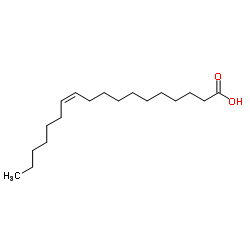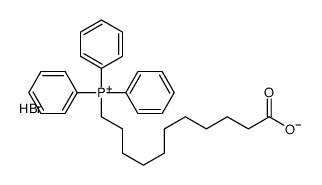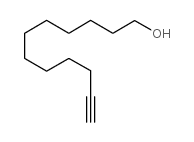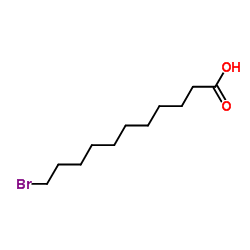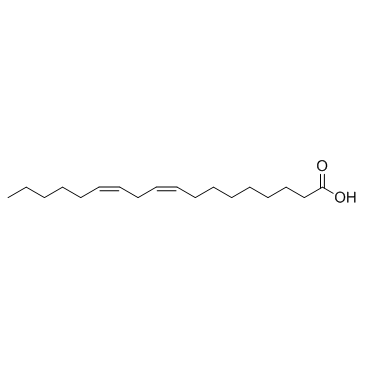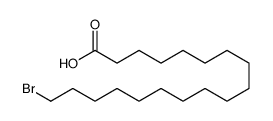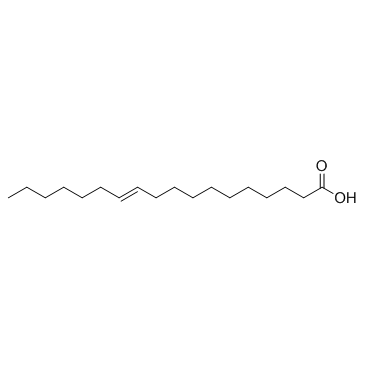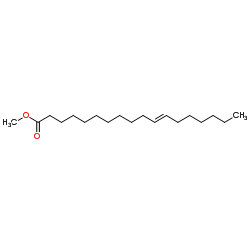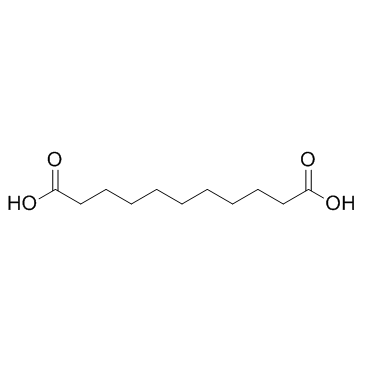506-17-2
| Name | cis-vaccenic acid |
|---|---|
| Synonyms |
(Z)-11-octadecenoic acid
cis-Vaccenic acid 11-Octadecenoic acid, (Z)- 11-cis-Octadecenoic acid cis-11-Octadecenoic acid MFCD00063187 11(Z)-Octadecenoic acid 11-Octadecenoic acid, (11Z)- (11Z)-11-Octadecenoic acid asclepic acid Vaccenic acid 11Z-Octadecenoic acid (11Z)-Octadec-11-enoic acid (Z)-vaccenic acid cis-11-Vaccenic acid |
| Description | cis-Vaccenic acid, the antiviral extract from Rhodopseudomonas capsulate and the predominant active component of Rhodopseudomonas capsulate[1], acts a potential fetal hemoglobin inducer[2]. |
|---|---|
| Related Catalog | |
| In Vitro | cis-Vaccenic acid (CVA) (50 μM, 70 μM and 100 μM) induces differentiation and up-regulates gamma globin synthesis in K562, JK1 and transgenic mice erythroid progenitor stem cells[2]. cis-Vaccenic acid (50 μM) also increased the percentage of benzidine positive JK-1 cell[2]. Cell Differentiation Assay[2] Cell Line: K562 cells Concentration: 50 μM, 70 μM and 100 μM Incubation Time: 48 and 120 hours Result: Induced differentiation appeared to be concentration dependent in K562 cells with 50 μM CVA being the most effective concentration with more than 20% of the K562 cells showing positive for Benzidine stain after 48 h of incubation with CVA. |
| References |
| Density | 0.9±0.1 g/cm3 |
|---|---|
| Boiling Point | 398.2±11.0 °C at 760 mmHg |
| Melting Point | 14-15ºC(lit.) |
| Molecular Formula | C18H34O2 |
| Molecular Weight | 282.461 |
| Flash Point | 295.0±14.4 °C |
| Exact Mass | 282.255890 |
| PSA | 37.30000 |
| LogP | 7.70 |
| Appearance | oil |
| Vapour Pressure | 0.0±2.0 mmHg at 25°C |
| Index of Refraction | 1.467 |
| Storage condition | −20°C |
|
Section 1. Chemical Product and Company Identification cis-Vaccenic Acid, synthetic Common Name/ Trade Name cis-Vaccenic Acid, synthetic Section 4. First Aid Measures Check for and remove any contact lenses. In case of contact, immediately flush eyes with plenty of water for at least
Eye Contact 15 minutes. Get medical attention if irritation occurs. Wash with soap and water. Cover the irritated skin with an emollient. Get medical attention if irritation develops. Skin Contact Serious Skin ContactNot available. InhalationIf inhaled, remove to fresh air. If not breathing, give artificial respiration. If breathing is difficult, give oxygen. Get medical attention. Not available. Serious Inhalation Do NOT induce vomiting unless directed to do so by medical personnel. Never give anything by mouth to an Ingestion unconscious person. If large quantities of this material are swallowed, call a physician immediately. Loosen tight clothing such as a collar, tie, belt or waistband. Not available. Serious Ingestion Section 5. Fire and Explosion Data Flammability of the Product May be combustible at high temperature. Auto-Ignition Temperature Not available. CLOSED CUP: 230°C (446°F). Flash Points Not available. Flammable Limits These products are carbon oxides (CO, CO2). Products of Combustion Fire Hazards in Presence of Slightly flammable to flammable in presence of open flames and sparks, of heat. Various Substances Risks of explosion of the product in presence of mechanical impact: Not available. Explosion Hazards in Risks of explosion of the product in presence of static discharge: Not available. Presence of Various Substances SMALL FIRE: Use DRY chemical powder. Fire Fighting Media LARGE FIRE: Use water spray, fog or foam. Do not use water jet. and Instructions Not available. Special Remarks on Fire Hazards Not available. Special Remarks on Explosion Hazards Section 6. Accidental Release Measures Absorb with an inert material and put the spilled material in an appropriate waste disposal. Small Spill Absorb with an inert material and put the spilled material in an appropriate waste disposal. Finish cleaning by Large Spill spreading water on the contaminated surface and allow to evacuate through the sanitary system. cis-Vaccenic Acid, synthetic Section 7. Handling and Storage Keep away from heat. Keep away from sources of ignition. Ground all equipment containing material. Do not Precautions breathe gas/fumes/ vapor/spray. Keep away from incompatibles such as oxidizing agents, alkalis. Keep container tightly closed. Keep container in a cool, well-ventilated area. Do not store above 0°C (32°F). Storage Freeze. Sensitive to light. Store in light-resistant containers. Section 8. Exposure Controls/Personal Protection Provide exhaust ventilation or other engineering controls to keep the airborne concentrations of vapors below their Engineering Controls respective threshold limit value. Ensure that eyewash stations and safety showers are proximal to the work-station location. Personal ProtectionSafety glasses. Lab coat. Gloves (impervious). Personal Protection in Case Splash goggles. Full suit. Boots. Gloves. Suggested protective clothing might not be sufficient; consult a specialist BEFORE handling this product. of a Large Spill Exposure LimitsNot available. Section 9. Physical and Chemical Properties Liquid.Not available. Physical state andO dor appearance Not available. Taste 282.47 g/mole Molecular Weight Not available. Color Not available. pH (1% soln/water) 158°C (316.4°F) - 163 C. at 0.4 mm Hg Boiling Point 14°C (57.2°F) -15 C. Melting Point Not available. Critical Temperature 0.88 - 0.89 (Water = 1) Specific Gravity Not available. Vapor Pressure Not available. Vapor Density Not available. Volatility Not available. Odor Threshold Not available. Water/Oil Dist. Coeff. Not available. Ionicity (in Water) Not available. Dispersion Properties Not available. Solubility Section 10. Stability and Reactivity Data The product is stable. Stability Not available. Instability Temperature Conditions of Instability Excess heat, incompatible materials Incompatibility with various Reactive with oxidizing agents, alkalis. substances Not available. Corrosivity cis-Vaccenic Acid, synthetic Sensitive to light. Special Remarks on Reactivity Not available. Special Remarks on Corrosivity Will not occur. Polymerization Section 11. Toxicological Information Absorbed through skin. Eye contact. Ingestion. Routes of Entry LD50: Not available. Toxicity to Animals LC50: Not available. Chronic Effects on Humans Not available. Other Toxic Effects onSlightly hazardous in case of skin contact (irritant), of ingestion, of inhalation. Humans Not available. Special Remarks on Toxicity to Animals Not available. Special Remarks on Chronic Effects on Humans Special Remarks on otherAcute Potential Health Effects: Toxic Effects on HumansSkin: Can cause mild to moderate skin irritation. Eyes: Can cause mild eye irritation. Inhalation: Inhalation of mist or vapor may cause respiratory tract irritation. Ingestion: Expected to be a low hazard. Section 12. Ecological Information Not available. Ecotoxicity Not available. BOD5 and COD Products of Biodegradation Possibly hazardous short term degradation products are not likely. However, long term degradation products may arise. The product itself and its products of degradation are not toxic. Toxicity of the Products of Biodegradation Not available. Special Remarks on the Products of Biodegradation Section 13. Disposal Considerations Waste must be disposed of in accordance with federal, state and local environmental control Waste Disposal regulations. Section 14. Transport Information Not a DOT controlled material (United States). DO T Cl assi fi cati on Not applicable. Identification Not applicable. Special Provisions for Transport cis-Vaccenic Acid, synthetic DO T (Pi ctograms) Section 15. Other Regulatory Information and Pictograms No products were found. Federal and State Regulations California prop. 65: This product contains the following ingredients for which the State of California has found to California cause cancer which would require a warning under the statute: No products were found. Proposition 65 Warnings California prop. 65: This product contains the following ingredients for which the State of California has found to cause birth defects which would require a warning under the statute: No products were found. Other RegulationsEINECS: This product is not on the European Inventory of Existing Commercial Chemical Substances. Canada: Not listed on Canadian Domestic Substance List (DSL) or Canadian Non- Domestic Substance List (NDSL). China: Not listed on National Inventory. Japan: Listed on National Inventory (ENCS). Korea: Not listed on National Inventory (KECI). Philippines: Not listed on National Inventory (PICCS). Australia: Not listed on AICS. WHMIS (Canada) Not controlled under WHMIS (Canada). Other Classifications This product is not classified according Not applicable. DSCL (EEC) to the EU regulations. Health Hazard HMIS (U.S.A.)1 National Fire Protection 1 Flammability 1 Association (U.S.A.) Fire Hazard 1 0 Reactivity Health Reactivity 1 Specific hazard Personal Protection B WHMIS (Canada) (Pictograms) DSCL (Europe) (Pictograms) TDG(Canada) (Pictograms) ADR (Europe) (Pictograms) Protective Equipment Gloves (impervious). cis-Vaccenic Acid, synthetic Lab coat. Not applicable. SECTION 16 - ADDITIONAL INFORMATION N/A |
| Symbol |

GHS07 |
|---|---|
| Signal Word | Warning |
| Hazard Statements | H315-H319-H335 |
| Precautionary Statements | P261-P305 + P351 + P338 |
| Personal Protective Equipment | Eyeshields;full-face respirator (US);Gloves;multi-purpose combination respirator cartridge (US);type ABEK (EN14387) respirator filter |
| Hazard Codes | Xi |
| Risk Phrases | 36/37/38 |
| Safety Phrases | 26-36 |
| RIDADR | NONH for all modes of transport |
| WGK Germany | 3 |
| HS Code | 2916190090 |
| Precursor 9 | |
|---|---|
| DownStream 8 | |
| HS Code | 2916190090 |
|---|---|
| Summary | 2916190090 unsaturated acyclic monocarboxylic acids, their anhydrides, halides, peroxides, peroxyacids and their derivatives。supervision conditions:AB(certificate of inspection for goods inward,certificate of inspection for goods outward)。VAT:17.0%。tax rebate rate:9.0%。MFN tariff:6.5%。general tariff:30.0% |


